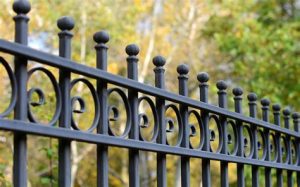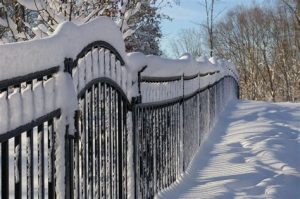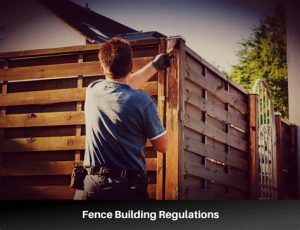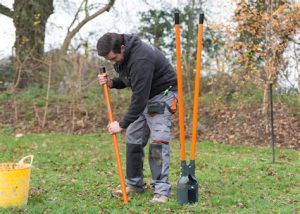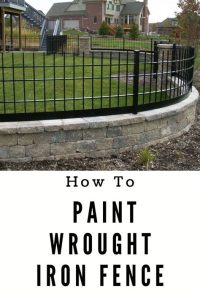Explore essential tips for winter fence installation, including challenges, considerations, and benefits to ensure a successful project during the colder months.As winter blankets the landscape in a serene layer of snow, many homeowners may wonder if it’s possible to install a fence during the colder months. While spring and summer are often seen as the prime seasons for such projects, winter installation can come with unique advantages and challenges. Whether you’re looking to enhance your property’s security, boost its curb appeal, or simply define your outdoor space, understanding the ins and outs of winter fence installation is essential. In this guide, we’ll explore the specific challenges you might face during winter, important considerations to take into account before you begin, tips for selecting the right type of fence, and best practices to ensure a successful installation. Plus, we’ll highlight the often-overlooked benefits of installing a fence during this chilly season. Let’s dive into what you need to know!
Challenges of Winter Fence Installation
Installing a fence during winter poses several unique challenges that homeowners should be aware of. One of the most significant obstacles is the frozen ground. When temperatures drop, the soil can become hard and icy, making it difficult for equipment to penetrate it, which can delay the installation process.
Additionally, snow accumulation can hinder visibility and make it hard to properly measure and mark the fence line. It’s essential to factor in the potential for inclement weather, such as snowstorms or heavy rainfall, which can further complicate the installation timeline.
Another challenge is the materials themselves. Many types of fencing, particularly wood, can be affected by cold temperatures, leading to issues such as warping or cracking. Homeowners need to understand their materials and how temperature fluctuations might impact them during the installation process.
Important Considerations Before Installing
Installing a fence during the winter months can present unique challenges. However, with the right preparation and knowledge, homeowners can navigate these challenges effectively.
- Ground Conditions: Frozen ground can make digging post holes difficult, if not impossible. It’s important to assess the soil conditions and determine if the ground is suitable for installing your desired fence type.
- Weather Forecast: Keep a close eye on the weather conditions. Heavy snowfall or severe ice can delay installation. Planning your installation when the weather is relatively mild can save time and ensure a smoother process.
- Materials: Ensure that the materials you choose are suitable for winter installation. Some materials, like wood, can be more susceptible to damage in colder weather. Opt for durable materials that can withstand winter conditions.
Additionally, proper insulation and protection are critical during winter months. Consider how temperatures might affect not just the installation but also the longevity of your fence.
Lastly, consult with professionals if you’re unsure about the installation process in winter.
Choosing the Right Type of Fence
Choosing the right type of fence is essential for homeowners, especially when considering winter installation. Various factors can influence this decision, including aesthetic preferences, privacy needs, and durability against harsh weather conditions.
- Wood Fences: Classic and versatile, wood fences can suit various styles. However, they require regular maintenance and may warp or rot in extreme weather.
- Vinyl Fences: Durable and low-maintenance, vinyl fences are resistant to weathering and available in many styles. They can be a great winter option, but ensure they are installed correctly to avoid issues caused by freezing temperatures.
- Chain Link Fences: Cost-effective and sturdy, chain link fences provide good visibility and security. They withstand winter conditions well but may not offer much in terms of privacy.
- Aluminum Fences: Lightweight and rust-proof, aluminum fences can mimic the look of wrought iron. They are a great low-maintenance choice that is effective even in winter.
- Composite Fences: Made from a combination of materials, composite fences combine the aesthetic appeal of wood with the durability of plastic. They are resistant to fading and warping and can perform well in winter conditions.
When making your choice, it’s also important to consider your local building codes and restrictions. Some areas may have specific guidelines on height, materials, or style that could affect your options.
Best Practices for Winter Installation
Winter can be a challenging season for fence installation, but with the right strategies, it can be accomplished effectively.
- Choose the Right Material: Some materials, such as vinyl or composite, perform better in cold temperatures compared to wood, which can become brittle.
- Plan for the Weather: Monitor the weather forecasts for optimal days to work. Avoid installing during snowstorms or when temperatures drop drastically.
- Use Heated Equipment: Consider using heated tools designed for cold weather. This will help to keep materials pliable and facilitate easier installation.
- Check the Ground Condition: Ensure that the ground is adequately thawed for digging posts. Use a post hole digger or auger to check the soil condition before proceeding.
When dealing with frozen ground, it may be necessary to adjust your installation methods.
Winter fence installation requires adaptability and a keen attention to the details of the environment.
Lastly, crucial to a successful winter fence installation is ensuring proper post alignment. Use string lines to maintain straightness and symmetry in your installation.
Benefits of Winter Fence Installation
Installing a fence during the winter months can offer several benefits that homeowners may not consider. While many might think that colder weather is not an ideal time for outdoor projects, winter fence installation can be both practical and advantageous.
One major benefit is the potential for better pricing. Many fencing contractors experience a decrease in demand during the winter, which can lead to more competitive pricing and the possibility of discounts. Homeowners can benefit from reduced labor costs and materials that may otherwise be marked up during the busier spring and summer months.
Additionally, winter installations can lead to a faster project timeline. Fewer projects on a contractor’s schedule mean they may be able to dedicate more time and resources to your fence installation. This can translate to quicker completion times, allowing you to enjoy your new fence sooner. Moreover, the ground conditions during winter can be more favorable for digging post holes, especially if the ground has not yet frozen solid.
Furthermore, installing a fence in winter minimizes disruption to your landscaping and yard. With fewer plants in bloom and less active soil, contractors can navigate around your property with less risk of damaging your garden. In summary, the benefits of winter fence installation can include cost savings, expedited project timelines, and reduced risk of landscaping disruption.
Frequently Asked Questions
Can I install a fence during winter?
Yes, you can install a fence in winter, but it requires careful planning and consideration of weather conditions.
What challenges might I face when installing a fence in winter?
The main challenges include frozen ground, snow accumulation, and shorter daylight hours, which can complicate the installation process.
Are there specific types of fences better suited for winter installation?
Yes, materials like vinyl and aluminum can be more suitable as they are less affected by winter conditions, while wooden fences may require special care to avoid damage.
How does freezing ground affect fence installation?
Frozen ground can make it difficult to dig post holes, potentially requiring specialized equipment or techniques to break through the frost.
Should I consider hiring a professional for winter fence installation?
Hiring a professional is advisable if you’re not experienced, as they have the tools and knowledge to deal with winter-specific challenges effectively.
What preparations should I make before starting a winter fence installation?
Prepare by checking the weather forecast, gathering the right tools, and ensuring you have a suitable area clear of snow for installation.
Are there any permits needed for fence installation in winter?
Yes, you may still need to obtain permits and adhere to local regulations, regardless of the season in which you’re installing the fence.
